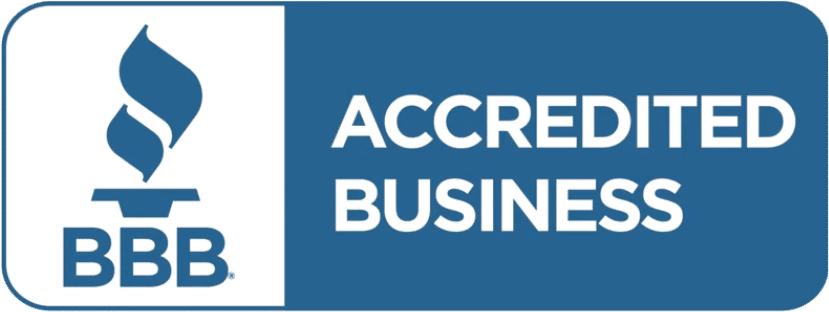How can I improve my Comprehensive Ranking System (CRS) score?
Published by: Can X Global Solutions Inc.
Thinking about starting a new life in Canada but feeling discouraged by a low Comprehensive Ranking System (CRS) score? You’re not the only one. Countless hopeful immigrants face the same struggle—applying again and again, only to fall short, questioning whether their dream of living in Canada will ever come true.But here’s the good news: your CRS score isn’t set in stone. With the right strategies and a bit of determination, you can significantly boost your score and increase your chances of receiving that coveted Invitation to Apply (ITA). Whether you’re just starting your immigration journey, or you’ve been trying for a while, this guide will show you exactly how to improve your CRS score and get one step closer to calling Canada home. Ready to unlock the secrets of a higher CRS score? Let’s dive into the key factors that influence your ranking and explore practical steps you can take to climb the immigration ladder. From understanding the intricacies of the CRS calculation to actionable tips for each scoring category, we’ve got you covered. 👇

Understand How the CRS Score Is Calculated
The Comprehensive Ranking System (CRS) score is composed of several key factors that immigration officials use to evaluate potential candidates. Understanding these components is crucial for anyone looking to improve their score:
- Core / Human Capital Factors
- Spouse or Common-Law Partner Factors
- Skill Transferability Factors
- Additional Points
Breakdown of CRS Score Components
Component | Maximum Points (Single) | Maximum Points (With Spouse) |
|---|---|---|
Core Factors | 500 | 460 |
Spouse Factors | N/A | 40 |
Skill Transferability | 100 | 100 |
Additional Points | 600 | 600 |
Total Possible | 1200 | 1200 |
Importance of Each Factor
- Core Factors: These include age, education, language proficiency, and Canadian work experience. They form the foundation of your CRS score.
- Spouse Factors: If applicable, your spouse’s language skills and education can contribute to your overall score.
- Skill Transferability: This combines your education and work experience with language proficiency to boost your score.
- Additional Points: These can significantly increase your score through provincial nominations, job offers, or Canadian education.
Understanding how each factor contributes to your overall CRS score is the first step in identifying areas for improvement. By focusing on enhancing specific components, you can strategically increase your chances of receiving an Invitation to Apply (ITA) for permanent residence in Canada.
Improve Your Language Test Scores (IELTS/CELPIP/TEF)
Improving your language test scores is crucial for boosting your CRS score. Focus on the following strategies:
Practice Regularly
Consistent practice is key to improving your language skills. Create a study schedule and stick to it:
Time Frame | Daily Practice |
|---|---|
1-2 months | 1-2 hours |
3-4 months | 2-3 hours |
5+ months | 3-4 hours |
Familiarize Yourself with Test Formats
Each test (IELTS, CELPIP, TEF) has its unique format. Understanding these formats will help you:
- Feel more comfortable during the exam
- Manage your time effectively
- Know what to expect in each section
Focus on Weak Areas
Identify your weak areas and concentrate on improving them:
- Speaking: Practice with native speakers or language exchange partners
- Writing: Write essays and get them reviewed by professionals
- Reading: Read diverse English or French materials daily
- Listening: Watch news, podcasts, and movies in the test language
Take Mock Tests
Regular mock tests will help you:
- Gauge your progress
- Identify areas needing improvement
- Get accustomed to test conditions
Now that you’ve improved your language scores, let’s explore how pursuing higher education can further boost your CRS score.
Pursue Higher Education or Additional Credentials
One of the most effective ways to boost your CRS score is by pursuing higher education or obtaining additional credentials. This strategy can significantly increase your points in the education category and potentially in the skills transferability factors.
Benefits of Higher Education for CRS Score
- Increased points for level of education
- Potential bonus points for Canadian education
- Enhanced language proficiency through academic studies
- Improved job prospects and work experience opportunities
Types of Educational Upgrades
Educational Upgrade | Potential CRS Point Increase |
|---|---|
Bachelor’s Degree | Up to 120 points |
Master’s Degree | Up to 135 points |
Doctoral Degree | Up to 150 points |
Tips for Maximizing Educational Points
- Consider programs aligned with in-demand occupations
- Look for institutions with post-graduation work permit options
- Explore accelerated or bridging programs to save time
- Evaluate online or part-time study options if working full-time
- Research credential recognition processes for foreign qualifications
Pursuing higher education not only improves your CRS score but also enhances your overall employability in Canada. Whether it’s completing a degree, obtaining a diploma, or earning professional certifications, each educational achievement can make a significant difference in your immigration journey.
Now that we’ve explored how to leverage education for your CRS score, let’s look at another crucial factor: gaining more skilled work experience.
Gain More Skilled Work Experience
Gaining more skilled work experience is a crucial factor in boosting your CRS score. The Express Entry system values candidates with extensive and relevant work experience, as it demonstrates adaptability and expertise in your field.
Impact of Work Experience on CRS Score
Years of Experience | CRS Points (NOC 0, A, or B) | CRS Points (NOC C or D) |
|---|---|---|
1 year | 40 | 0 |
2-3 years | 53 | 0 |
4-5 years | 64 | 0 |
6+ years | 72 | 0 |
Remember, the quality of your work experience matters as much as the quantity. Focus on roles that fall under TEER levels 0, 1, 2 or 3, as these are valued more highly in the CRS calculations. Additionally, consider gaining Canadian work experience, if possible, as it can significantly boost your score.
Now that we’ve explored how to gain more skilled work experience, let’s look at another powerful way to increase your CRS score: obtaining a Provincial Nomination.
Get a Provincial Nomination (PNP)
Provincial Nomination Programs (PNPs) are immigration pathways designed to address specific labor market needs in different Canadian provinces and territories. These programs allow provinces to nominate candidates who possess skills and experience that align with their economic goals.
Benefits of a Provincial Nomination
A provincial nomination can significantly boost your CRS score, adding 600 points to your total. This substantial increase often guarantees an invitation to apply for permanent residence in the next Express Entry draw.
Benefit | Description |
|---|---|
CRS Score Boost | Adds 600 points to your total score |
Increased Chances | Almost guarantees an invitation to apply |
Regional Opportunities | Access to specific provincial job markets |
Faster Processing | Some PNPs offer accelerated processing times |
How to Pursue a Provincial Nomination
- Research PNP streams:
- Identify provinces with streams aligned to your skills
- Check eligibility requirements for each program
- Enhance your profile:
- Gain relevant work experience
- Improve language proficiency
- Obtain additional education or certifications
- Express interest:
- Create an Express Entry profile
- Indicate interest in specific provinces
- Apply directly:
- Some PNPs allow direct applications outside Express Entry
- Follow province-specific application procedures
Challenges and Considerations
While pursuing a provincial nomination can significantly improve your CRS score, it’s important to consider the commitment to a specific province and the competitive nature of these programs. Research thoroughly and ensure you’re prepared to settle in the nominating province before applying.
Enhance French Language Proficiency
Why French Proficiency Matters
Improving your French language skills can significantly boost your CRS score. Here’s why:
- Bilingual advantage: Canada values bilingualism
- Additional points: Up to 50 extra CRS points for French proficiency
- Broader opportunities: Opens doors in French-speaking regions
Strategies to Enhance French Proficiency
- Immersive learning techniques
- Regular practice with native speakers
- Online language exchange platforms
- French language courses or tutoring
French Language Tests for CRS Points
Test Name | Description | Max Points |
|---|---|---|
TEF Canada | Test d’évaluation de français | 50 |
TCF Canada | Test de connaissance du français | 50 |
Tips for French Language Improvement
- Set realistic goals and create a study schedule
- Use language learning apps like Duolingo or Babbel
- Watch French movies and TV shows with subtitles
- Read French newspapers and books
- Practice speaking French in everyday situations
Enhancing your French language skills not only improves your CRS score but also prepares you for a more successful integration into Canadian society. As you work on your French proficiency, consider how this skill can complement your other qualifications and experiences to make your Express Entry profile even stronger.
Apply with a Spouse or Partner Strategically
When applying for Express Entry with a spouse or partner, it’s crucial to strategically evaluate how their qualifications can boost your overall CRS score. Consider the following factors:
- Language proficiency
- Education level
- Canadian work experience
- Age
Here’s a comparison of potential spousal contributions:
Factor | Maximum Points (Principal Applicant) | Maximum Points (Spouse/Partner) |
|---|---|---|
Language | 160 | 20 |
Education | 150 | 10 |
Work Experience | 80 | 10 |
Age | 110 | N/A |
Maximizing Your Combined Score
To maximize your CRS score as a couple:
- Compare individual scores
- Determine the strongest candidate
- Allocate resources for improvement
- Update profiles regularly
Balancing Improvements
Focus on areas where your spouse can contribute most effectively:
- Language tests: Encourage your partner to achieve CLB 9 or higher
- Education: Consider additional certifications or degrees
- Canadian work experience: Explore opportunities for both partners
By strategically applying as a couple and focusing on key areas for improvement, you can significantly enhance your chances of receiving an Invitation to Apply (ITA) through the Express Entry system.
Continue Working in Canada (for Canadian Experience)
Canadian work experience is a valuable asset in the Express Entry system, significantly boosting your CRS score. Here’s how you can leverage it:
Benefits of Canadian Work Experience
Duration | CRS Points |
|---|---|
1 year | 40 points |
2 years | 53 points |
3+ years | 70 points |
Strategies to Gain Canadian Work Experience
- Secure a work permit: Explore options like Post-Graduation Work Permit (PGWP) or employer-specific work permits.
- Network actively: Attend job fairs, join professional associations, and use LinkedIn to connect with potential employers.
- Volunteer or intern: While not counted as work experience, these opportunities can lead to paid positions.
- Consider part-time or contract work: Even non-continuous work can count towards your experience.
Maximizing Your Canadian Work Experience
- Document everything: Keep detailed records of your employment, including job descriptions and reference letters.
- Ensure your work is skilled: Only NOC skill type 0, A, or B jobs count for Express Entry.
- Maintain full-time status: Work at least 30 hours per week or equivalent amount in part-time.
- Stay with reputable employers: This helps in verifying your experience during the application process.
By continuing to work in Canada, you not only improve your CRS score but also enhance your overall profile, making you a more attractive candidate for permanent residency.
Update Your Express Entry Profile Regularly
Situation | Recommended Update Frequency |
|---|---|
| No changes | Every 3-6 months |
New achievements | Immediately |
Approaching expiry | 1-2 months before |
Tips for Effective Updating
- Set calendar reminders
- Keep supporting documents ready
- Double-check all entries
- Be honest and accurate
Regularly updating your Express Entry profile ensures that your CRS score accurately reflects your current qualifications and circumstances. This practice can significantly impact your chances of receiving an Invitation to Apply (ITA) for permanent residence. Remember, even small updates can make a difference in the competitive Express Entry pool. Stay proactive and diligent in maintaining your profile to maximize your opportunities for immigration to Canada.
Stay Informed About Category-Based Draws
Category-Based Selection Draws are a game-changer in the Express Entry system. These targeted draws prioritize candidates with specific skills or experience that are in high demand in Canada. Here’s what you need to know:
Key Categories for Targeted Draws
- French-language proficiency
- Healthcare and social services
- STEM occupations
- Trade occupations
- Agriculture and agri-food
- Education
Benefits of Category-Based Selection
Benefit | Description |
|---|---|
Addressing Labor Shortages | Targets specific sectors with high demand |
Increased Opportunities | Candidates in key categories may have better chances |
Economic Growth | Aligns immigration with Canada’s economic needs |
How to Stay Informed
- Follow IRCC’s official website and social media channels
- Subscribe to Express Entry newsletters
- Join reputable immigration forums and groups
- Consult with a registered immigration consultant
By staying informed about these targeted draws, you can better position yourself in the Express Entry pool. If your skills align with one of the priority categories, you may have an increased chance of receiving an Invitation to Apply (ITA), even if your CRS score isn’t at the top of the pool. Remember to regularly update your Express Entry profile to reflect any changes in your qualifications or experience that might align with these targeted categories.
Conclusion
Improving your Comprehensive Ranking System (CRS) score requires a multifaceted approach. By focusing on key areas such as language proficiency, education, work experience, and strategic application techniques, you can significantly boost your chances of receiving an Invitation to Apply (ITA) for Canadian permanent residence. Remember that the immigration landscape is dynamic, with program-specific and targeted draws occurring regularly. Stay informed about these opportunities and consistently update your Express Entry profile to reflect your latest achievements and qualifications. By implementing these strategies and remaining persistent in your efforts, you can maximize your CRS score and move closer to realizing your dream of immigrating to Canada.
Why Can X
At Can X, we have been guiding clients through the Express Entry process since its inception, helping individuals achieve their dream of becoming permanent residents of Canada. With years of experience and a proven track record, we take pride in our 100% success rate for clients who meet the requirements. Our team’s commitment to excellence, attention to detail, and personalized approach ensures that your immigration journey is handled with the utmost care, resulting in timely and successful outcomes. Let us be your trusted partner in navigating Express Entry and securing the future you deserve.
Trusted by Clients from 30+ Countries
We provide trusted and effective mobility solutions, assisting clients from around the world in successfully starting their new life in Canada.










